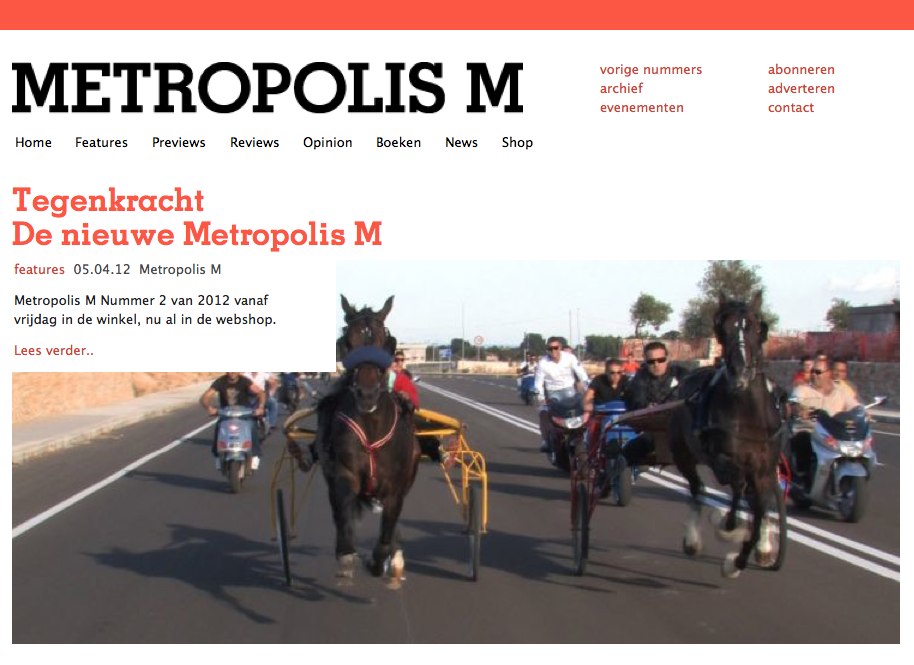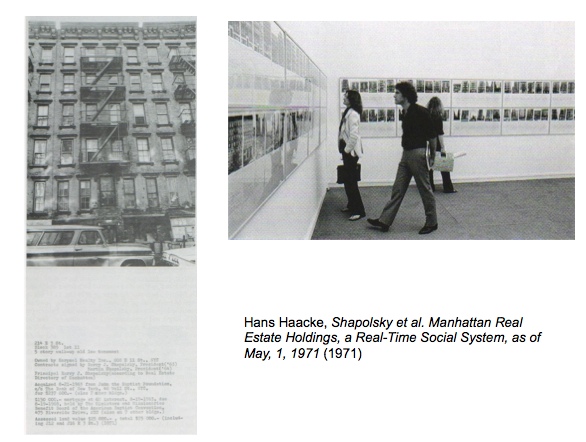Mick Wilson’s lecture entitled, The Doctor is Out: The Doctor is In -Or- Research isn’t everything: Everything isn’t research -Or- Just Do Something That Interests You, And Shut Up Already, Why Don’t You! kicked off our seminar in which we focused on the coinage, ‘artistic research’ with Mick Wilson, dean of Gradcam in Dublin, Ireland and Saskia van der Kroef, editor in chief of Metropolis M. Mick began by mapping out contemporary artistic research with the notion of ‘reputational economy’, showed examples of his own PhD students at Gradcam, contrasted by contemporary art works as artistic enquiry, defined the Bologna accords and even neoliberalism! amongst other things.
Mick states: ‘The question of doctoral level studies and the question of research within art practice is situated as different but overlapping matters. The tensions around notions of “autonomy”, “purity”, and “alterity” – with respect to the institutional “home” and “circuit” of art practice – are indicated within the current debates on the doctorate and on artistic research.’ He deconstructed myths such as artists are pure, artists should be mute, only make something nice to look at, don’t have things to tell-only to show, they need to express themselves through instinct, emotion or the championing of the modern artist as new primitive. These are old conversations, this is now over.
He then introduced the idea of ‘reputational economies’ as a way of describing how work in the art world is organized, comparing this to wage labour. The ‘contest for legitimacy and authority within different, but also overlapping, reputational economies is identified with reference to the competition to name, define, delimit and authorise artistic saliency and cognitive value.’ How do you build your reputation? You don’t give yourself the reputation, other people give it to you, it gets built by others when you leave the room. Reputational economy operates to manage work opportunities. The reward for doing work is in the form of another show. Opportunity is based on having a reputation and the reward for work is more reputation. But it is not only the art world that makes use of reputational economies.
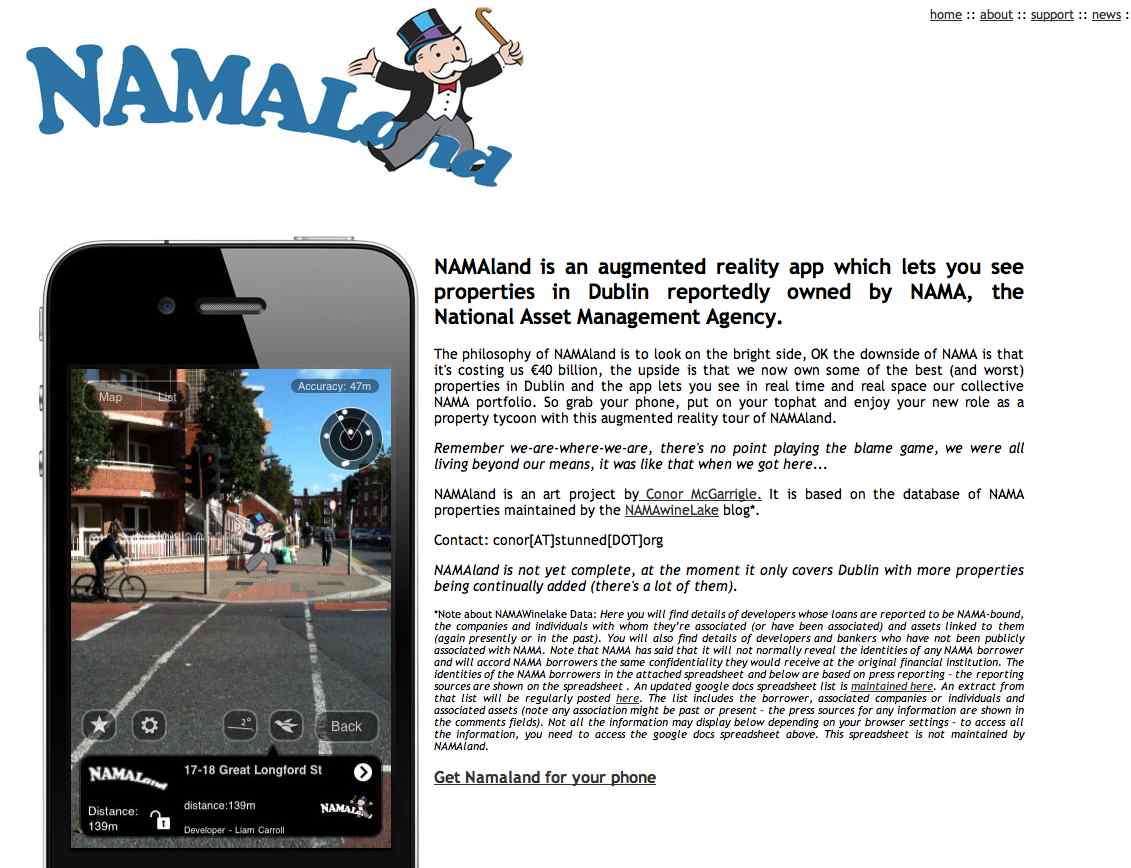

Reputational economy is used to describe how academia works. This was then contextualized within the academic systems and the structures that enforce the reputation. Academia works for organising the distribution or rewards for work: formal training, obtaining a degree, peer review system. There is a debate though concerning how to maintain reputational currency. Where once the professor was king, now managers are taking control of systems of award. Are we paid a lot? No, it means getting more opportunities to do work, to have more shows, the more shows, the more opportunities. When people are cited in the show, this builds up the reputation. So although this reputational economy takes place in the academy (construed as a singular institutional locus dis-articulated from the larger art system) when we come to the question of research, two different economies emerge with the convergence of the university economy and the art world.
Mick then showed us his programme in Dublin as examples of artistic research practices for PhDs. The students are artists, curators critics. They are asked to work around and deal with these four questions: 1. what are you trying to find out? 2. Why is it worth knowing? How do you go about finding it out? 4. How will you know when you have finished finding it out? In the end what you will produce will not be a response to these 4 questions, but the struggle will bring you from production, making stuff- to enquiry and your relationship with the world – not the production.
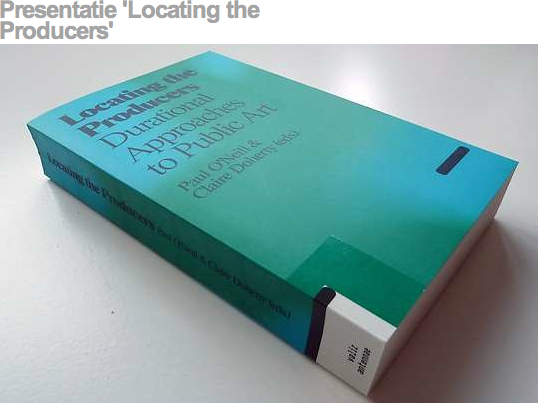
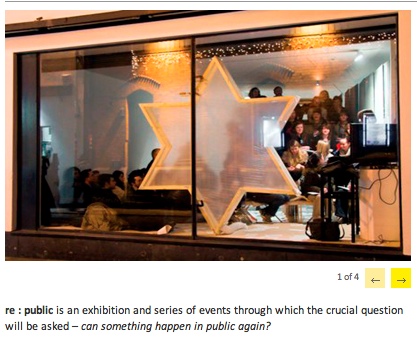
In contrast to academic research, Mick collected a few art projects that are structured as enquiry. The longterm project in IJburg, NL Het Blauwe Huis, the transport and exhibition of a work from the Vanabbemuseum Picasso in Palestine, the publication Locating the producers a research project that curated texts about curation, re:public in Temple Bar, Dublin, which asked whether something can happen in public again? and East Side Projects in Birmingham, UK, a research undertaking that constantly built layers from previous shows. Although there was much more to Mick’s 3 hour lecture, he summarized this comparison between PhD enquiry and art world enquiry as having similar goals. The artwork becomes a way to release knowledge. Art is a process, as well as knowledge production and it produces insight into how the world is. Therefore it is not necessarily about authorship.
In the afternoon, Saskia van der Kroef, art critic, writer and editor-in-chief at Metropolis M joined us and gave a brief insight about Metropolis M, introduced some of the very recent publications on research-based art practice and the modes in which artistic research is currently theorized. Her lecture DIY or doctorate? Towards a Genealogy of Art Practice as Research, collates some of her research for her MPhil degree. ‘Artistic research’ and the PhD or doctorate in art are still much-debated subjects in the (European) art field, and especially at art academies – institutions in which these discussions initially started, some 10 years ago, as a result of more general reforms in European higher education. In this presentation she detached the subject from its current treatment, which is characterized by a certain ‘present-ness’ and a dominant focus on its position in art education (instead of art production), by zooming into a possible history of research in visual art. Saskia showed us a number of examples of how research has already been part of art practice and can be in the future.
